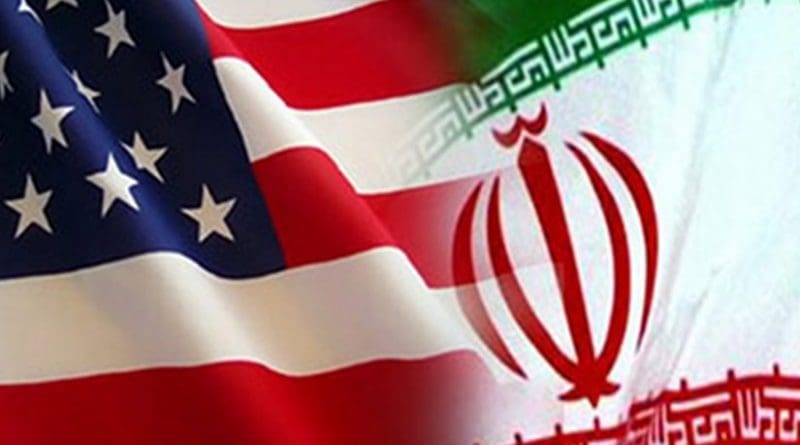Selected US-Iran Cooperation After The Nuclear Deal – OpEd
Although the Iran nuclear talks and the landmark deal that they have yielded have been nuclear-focused, there is little doubt about the broader ramifications of the historic agreement, particularly in the realm of Iran-West relations. The re-opening of the British embassy in Tehran after a four year hiatus is perhaps the clearest manifestation of this new development that is fully in line with the campaign pledges of President Hassan Rouhani to improve Iran’s relations with the world community. A big question is, of course, if the Iran-British rapprochement can prove as a prelude for the reconstruction of Iran’s relations with the West, including the United States? Lest we forget, Iran’s Supreme Leader, Ayatollah Seyed Ali Khamenei, has stated in the past that once the nuclear issue is resolved, Iran is willing to consider dialogue on other regional issues.
The stage is therefore set for new US-Iran dialogue on a range of issues of mutual concern including terrorism, narco-traffic, and the future of Afghanistan. Should the Iran nuclear agreement survive the US Congressional opposition and then enter its implementation phase, in the absence of any evidence of US backtracking on its obligations and showing bad-faith, hypothetically speaking the climate for such a dialogue between Iran and US will be gradually readied. Much depends on faithful implementation of the Joint Comprehensive Plan of Action (JCPOA) and the lifting of Iran sanctions as stipulated in the agreement, in order to gain Iran’s confidence that an actual ‘paradigm shift’ with respect to Iran has transpired in Washington.
But, there are cognitive and practical dimensions to any ‘paradigm shifts’ and, indeed, this entails a process of shifting attitudes and adjusting perceptions that will require the passage of time. In a process-oriented approach toward US-Iran rapprochement, there are several stages and multiple prerequisites that cannot be bypassed for the sake of a quick resolution. Rather, a careful and objective assessment of the present obstacles, difficulties, and the challenges at the policy level is necessary in order to avoid naive and subjective conclusions that may express undue or premature optimism unwarranted by the objective conditions. A number of Iranian policy experts have referred to a structural conflict between US and Iran, which needs to be carefully examined and determined if indeed there is an endemic ‘structural’ dimension to US-Iran hostility that will inevitably survive a nuclear breakthrough, or is this a policy-based problem that can be potentially resolved as a result of policy changes? While at the moment such big yet delicate questions await a conclusive analytic response, the practical issues of mutual concern for policy-makers in Tehran and Washington cannot be postponed indefinitely on the account of epistemic ambiguities. The clear and present danger of ISIS (Daesh) terrorists, spilling into Afghanistan in addition to Syria and Iraq, is one such issue that raises the prospect of future US-Iran dialogue on the future of Afghanistan, in light of the US’s planned departure in 2016. Afghanistan’s political leadership has been quick to welcome the JCPOA precisely because of their security concerns and their desire to witness a warming of US-Iran relations that would benefit Afghanistan’s internal stability.
Fortunately, Iran’s foreign policy machinery, headed nowadays by Dr. Mohammad Javad Zarif, who played an instrumental role in the post-Taliban architecture over a decade ago, is uniquely prepared to address the policy demands with respect to the on-going strife in Afghanistan, which has the potential for a qualitative worsening in the near future, thus adversely affecting the regional calculus. It is in the national interests of both Iran and the US to engage in new trilateral (with Kabul) dialogue on Afghanistan security, given US’s expensive investments on Afghan stability since 2001 and, on the other hand, Iran’s concerns about new wave of refugees, spill-over conflict, etc.
Needless to say, an important prerequisite for such a dialogue is (a) a re-mapping of US’s hostile attitude toward Iran that has continued unabated to some extent, in light of the negative comments about Iran by various US officials including Ashton Carter, the US Defense Secretary, and (b) US’s explicit appreciation of Iran’s constructive role in regional affairs, in light of the recent comment by the British Foreign Secretary Philip Hammond that “Iran is, and will remain, an important country in a strategically important but volatile region.” So far, there is a conspicuous lack of any US official echoing Mr. Hammond’s sentiment and, instead, we witness the incessant demonization of Iran by so many US officials and former officials, whose Manichean image of Iran is in dire need of deconstruction. But, if US’s policy on Iran is now sailed by the winds of a “new realism,” then there is no doubt that expanding the purview of talks with Iran beyond the nuclear issue and narrow-focusing on the existing and potential future crises in the region is a logical next move that as stated above serves the national interests of both Iran and the US. From Iraq to Syria to Yemen, to the deadlocked Middle East peace process, to Afghanistan, and so on, there are numerous issues on the US-Iran boilerplate that need urgent attention, and much like the past bilateral US-Iran dialogue on Iraq’s security, a similar dialogue on Afghanistan is necessary, one that takes into consideration the lessons drawn from the past history, e.g., avoiding the Bush administration’s “axis of evil” wrong turn. A right turn in US policy might in fact begin by a candid admission of such dreadful policy errors that today simply serve as ‘roads better not taken’.

